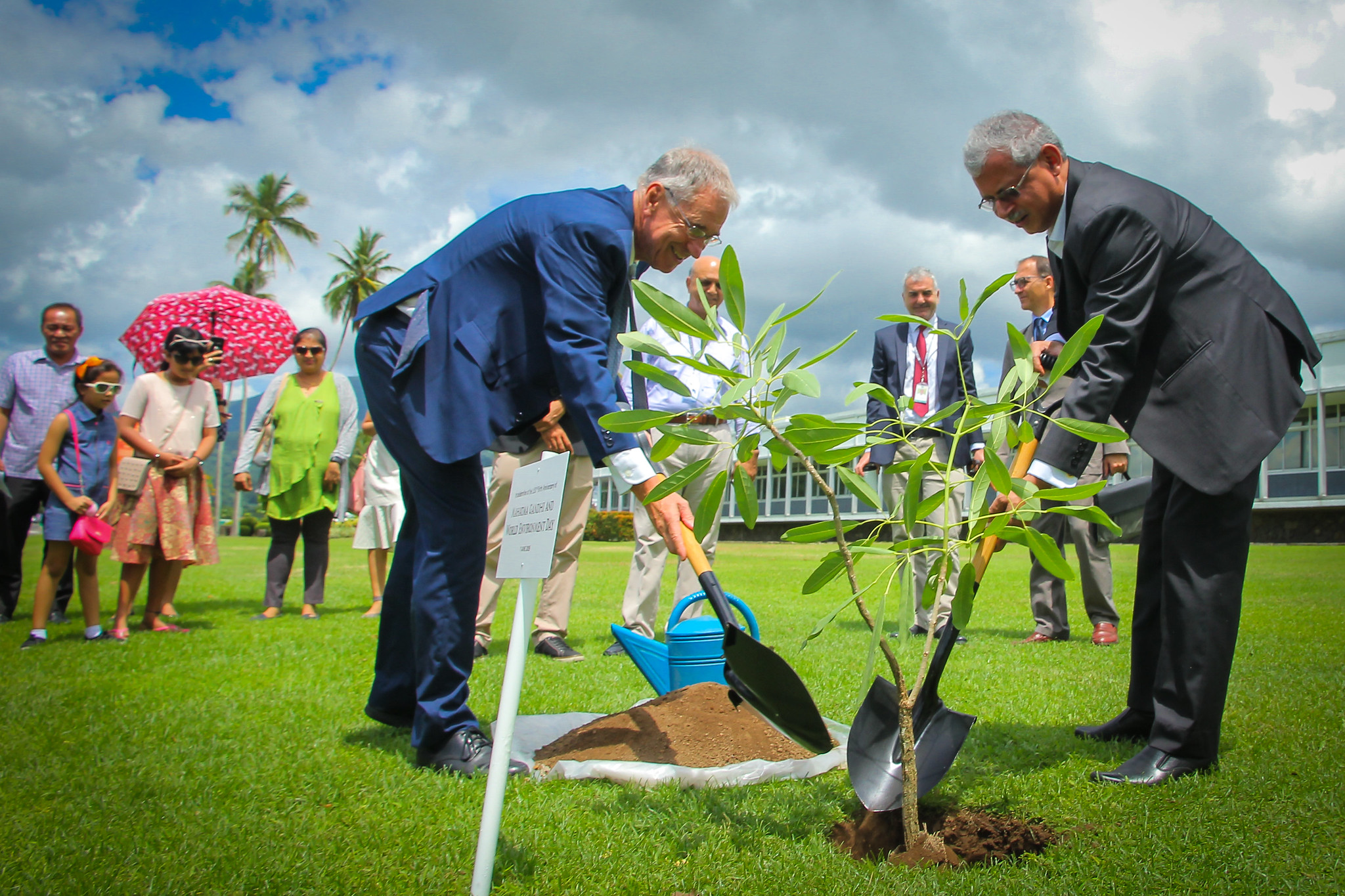IRRI and India reaffirm their commitment to a more enriched rice sector on the 150th birthday of Mahatma Gandhi

07 June 2019, Los Banos, Laguna -- The International Rice Research Institute (IRRI), together with the Indian Embassy in the Philippines, celebrated Mahatma Gandhi’s 150th birth anniversary with a tree-planting ceremony.
“For six decades, IRRI and India have been strong partners in improving the rice sector of the country,” said by H. E. Jaideep Mazumdar, the Ambassador of India to the Philippines.
“Many of our scientists and researchers were trained in IRRI and are now working to further strengthen agriculture in different countries in South Asia. We are happy to be here today to celebrate a cause that both India and the institute take to heart -- to create a rice sector that is sustainable for this generation and the many others to come.”
IRRI continues to deliver on its mission to transform the rice sector in South Asia. With innovations that help create sustainable farming and improve the lives of those who depend on the rice sector, it carries out many projects, particularly in India, that is positioned to boost farmers’ income and make rice accessible to those who need it the most. A demonstration of India’s confidence in IRRI’s work is the establishment of the IRRI South Asia Regional Centre in Varanasi, Uttar Pradesh. It is the institute’s regional facility that aims to enhance South-South collaboration and strengthen the capacity of rice-growing countries, as well as deliver research- for-development services for the private and public sectors.
“Mahatma Gandhi’s words are an inspiration to IRRI, where we develop ways to make rice agri-food systems more productive, resilient, and sustainable while working on innovations that help protect the environment,” said Temina Lalani-Shariff, director of Communication and Stakeholder Engagement at IRRI. “These include best practices like alternate wetting and drying, which periodically drains and floods fields, and direct seeding of rice where seeds are planted directly in the field rather than the traditional transplanting. Both practices reduce water by up to 25% and minimize greenhouse gas emissions from standing water.”
The event coincides with World Environment Day, observed every 5th of June.
Gandhi was a political and social activist known for his messages of unity, peace, and freedom. He is regarded in India as the Father of the Nation as he fought through nonviolent protest for the independence of his people from colonial rule. His example inspired independence and civil rights movements across the globe.
Apart from his work in peace and unity, Gandhi's views on the sustainable use of resources and the dangers of excessive industrialism and materialism made him one of the earliest environmentalists. He once said that “The earth has enough for everyone’s needs, but not enough for everyone’s greed.” For Gandhi, collective action is important to achieve a peaceful community and to protect the environment from degradation.
Witnessed by IRRI staff, members of the Indian Embassy, and the institute’s neighboring community, the tree planting ceremony symbolizes Gandhi’s deeply-rooted philosophies about people and communities caring for and living in harmony with the environment.